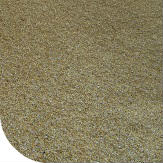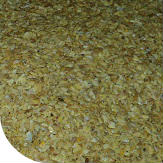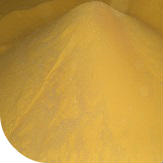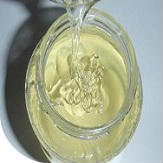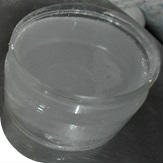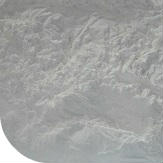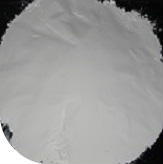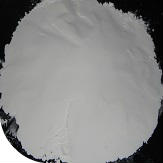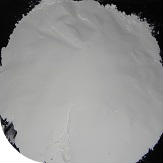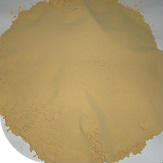Sorbitol
Sorbitol a hexavalent sugar alcohol is a common constituent in many edible fruits. Although known since many decades, it could not find any commercial applications, as its extraction from fruits was very expensive. Its importance was recognized later only after the large scale economical manufacture of sorbitol from the commercially available glucose became possible by catalic reactions with hydrogen.
During the last few decades, numerous industrial uses of sorbitol were established in Europe, USA, Japan and elsewhere in the world, to make it one of the important industrial chemicals, with innumerable applications in large number of industrial processes. The versatile and unique properties of sorbitol came to known to the Indian industry only during the last two – three decades. Even today, the indigenous industries are not at familiar with the varied and versatile properties of sorbitol and it’s applications in industrial processes.
Sorbitol Specifications
| S.No | Tests | Specification – IP | Specification – Tech |
| 1 |
Description |
Clear, Colourless or Faintly Yellow, Syrupy Liquid | Clear, Colourless or Faintly Yellow, Syrupy Liquid |
| 2 | Solubility | As per IP | - |
| 3 | Identification | As per IP | - |
| 4 | Acidity or Alkalinity |
Shall require not more than
0.2 ml of 0.01 M NaOH or 0.3 ml of 0.01 M Hcl |
Shall require not more than
0.2 ml of 0.01 M NaOH or 0.3 ml of 0.01 M Hcl |
| 5 | Optical Rotation | + 1.5 to + 3.5 Deg |
+ 0 to 1.5 Deg |
| 6 | Refractive Index | 1.455 to 1.465 at 20 C | 1.455 to 1.465 at 20 C |
| 7 | Relative Density | Not less than 1.285 at 20 C | Not less than 1.285 at 20 C |
| 8 | Clarity & Colour of Solution | Clear and Colourless |
Clear and Colourless |
| 9 | Arsenic | Not more than 2 PPM | Not more than 2 PPM |
| 10 | Heavy Metals | Not more than 10 PPM | Not more than 10 PPM |
| 11 | Chloride | Not more than 50 PPM | Not more than 50 PPM |
| 12 | Nickel | Not more than 1 PPM | Not more than 1 PPM |
| 13 | Sulphate | Not more than 125 PPM | Not more than 125 PPM |
| 14 | Reducing Sugars | Shall require not less than 12.8 Ml of 0.05 M Sodium Thio Sulphate | Shall require not less than 12.8 Ml of 0.05 M Sodium Thio Sulphate |
| 15 | Sulphated Ash | Not more than 0.1% | -- |
| 16 | Assay for Solid Matter | 68 to 72% w/w | -- |
| 17 | Assay for Polyols | Not less than 62% w/w | Not less than 62% w/w |
Applications
Commercially, Sorbitol is generally marketed in the form of 70% solution, as a clear colourless or fainty yellow syrupy liquid, with a sweet cooling taste. It is chemically classified as a polyhydric alcohol.
Being a hexavalent alcohol, it is closely related chemically to the bivalent glycol, ethylene glycol. However, unlike glycols and glycerol, sorbitol occurs as a white solid substance. In an aqueous solution of 70 % of w/w strength, sorbitol has many common properties of glycols and glycerol, which make sorbitol a good substitute.
Sorbitol is chemically inert and therefore compatible with many chemical substances, which makes it useful in cosmetic and pharmaceutical formulations and minimize the dangers of any side reactions.
Sorbitol liquid (70 %) hardly reacts to fluctuations in environmental humidity. This makes sorbitol liquid a good humectant (water stabilizer). As a humectant plasticizer sorbitol is now increasingly used alone or in the gelatin capsule industry, printing ink formulations, cosmetic emulsions and tobacco processing.
Sorbitol is non-volatile with steam contrary to glycerol and other polyalcohols. This makes the use of sorbitol economical. The non-volatile nature of sorbitol liquid also makes it useful either alone or in combination with glycerol, in textile dressing, dyeing and printing.
To summarise the principal advantages which sorbitol exhibits over other polyols are:
- Sorbitol gives up water very slowly to dry atmosphere.
- Sorbitol takes up water very slowly from a humid atmosphere.
Sorbitol liquid is particularly of value for the formulations of products. Where a high grades foaming capacity is the essential mark of quality, such as shaving creams. Shaving soaps and other cosmetics preparations.
In addition sorbitol liquid does not promote electrical charging. It has considerable anti static activity. This anti-static activity provides certain advantages in textile finishing and paper processing.
The relatively non-toxicity of Sorbitol, further is a distinctive advantage, when compared to the toxicity exhibited by ethylene glycol in internal use. This non-toxicity has made possible the extensive use of sorbitol in oral pharmaceutical formulations and edible gelatin capsules. For the same reason, the food and drug administration permits the use if sorbitol in the manufacture of wrapping papers for food stuffs. Sorbitol powder is preferred in the preparation of sorbitol-based esters and polyethers.
PACKING: HDPE barrels of 270Kg/300 Kg

